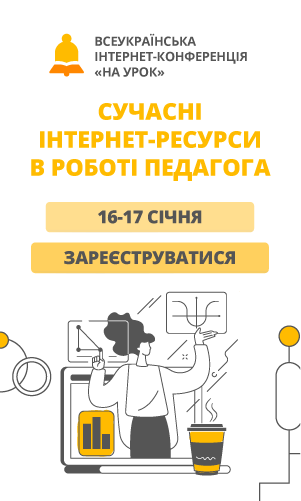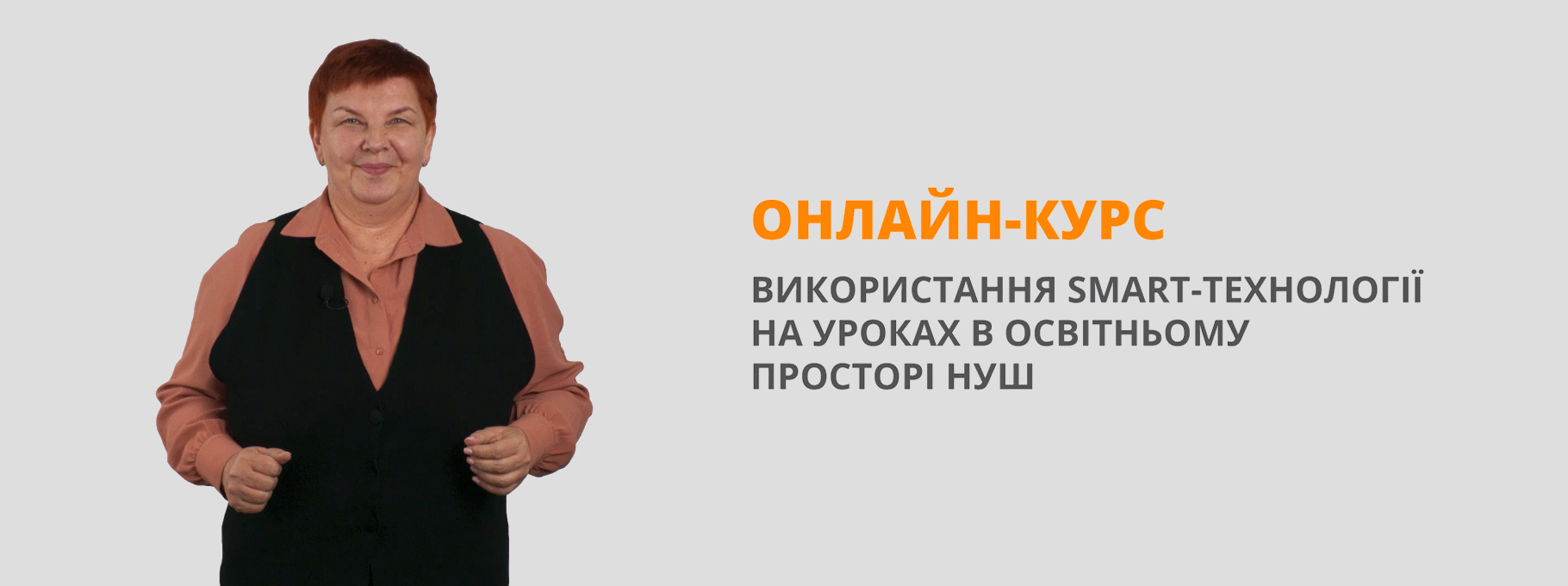Урок "Політична ситуація в Україні. Умовні речення."
Тема заняття. Політична ситуація в країні. Умовні речення.
Мета освітня: розширити уявлення студентів про країнознавчі реалії рідної країни (України), зокрема про політичну ситуацію.
практична: розвивати навички читання на основі тексту «Political System of Ukraine», де є відповідна додаткова інформація, обговорення якої планується на парі), ввести новий ЛМ та вчити вживати його у понадфразовій єдності, ввести новий граматичний матеріал про умовні речення;
розвиваюча: розвивати логічне мислення та пам'ять, розвивати інтелектуальну гнучкість мислення.
виховна: виховувати культуру спілкування; формувати позитивні риси характеру: допитливість, наполегливість у подоланні труднощів, виховувати у студентів любов до англійської мови .
Тип заняття: застосування знань, формування вмінь і навичок.
Обладнання:
КартаУкраїни.
- Н. Кішик, Л. Коваль, О. Яскевич «English for Communication», Дрогобич 2005.
- Є.О. Мансі «Практикум з англійської мови», Київ 2005.
- Інтернет-джерела.
Зміст заняття.
I. Організаційний момент.
Привітання
Перевірка готовності аудиторії та студентів до заняття
Виявлення відсутніх
II. Підготовка до сприйняття іншомовного мовлення.
Повідомлення теми, мети і завдань заняття.
Уведення в іншомовну атмосферу.
III. Основна частина заняття.
3.1.Перевірка домашнього завдання.
3.2.Розвиток навичок аудіювання.
3.3.Розвиток навичок читання та перекладу.
3.4.Розвиток навичок усного мовлення.
3.5.Введення нового граматичного матеріалу.
IV. Заключна частина заняття.
Підсумки заняття.
Оцінювання й мотивація навчальних досягнень.
Домашнє завдання.
Хід заняття.
I. Організаційний момент.
Good morning dear students, how are you Helen (Olga)? Did you have fun on your weekends? What did you do? Do you ready for the lesson? Who is absent today?
II. Підготовка до сприйняття іншомовного мовлення.
1. Explain what is meant by:
A great variety of plant species; favourable geographical position; leading farming regions; a major producer; economy based on free enterprise; accountable to the President; subject to approval by the Verkhovna Rada.
2. Fill in prepositions or adverbial particles.
Science ...Ukraine plays an outstanding role. It is… vital importance the solution ... the principal task linked ... the national economy, raising the well-being ... the population. Ukrainian scientists have made a valuable contribution ... the world's science. The amount... fundamental research is constantly growing. The first compute and calculator were made ... Ukraine. New trends... mechanics, physics, chemistry, biology, cybernatics, mathematics and social sciences were developed.
The science ... Ukraine holds a leading place… the development... world science ... a number ... problems. Especially great success it has scored… the sphere... electric welding and metallurgy. Ukrainian scientists have created new technologies ... producing man-made diamonds. Much work has been done ... the study ... Earth surface,… space exploration. The Ukrainian scientist S. Korolyov designed the first spaceships. Our scientists contributed a lot... the study… seas and oceans. The Ukrainian land has given a lot... gifted scientists ... the world… them are l.Pulyui, O Bohomolets, M.Hrushevsky, B.Paton, M.Amosov and many others.
III. Основна частина заняття.
3.1. Перевірка домашнього завдання.
3.2. Розвиток навичок аудіювання.
CHAPTER II OF THE CONSTITUTION
Chapter II of the Constitution of Ukraine assures human and civil rights and freedoms. Citizens have equal rights and freedoms before the law. Citizens of Ukraine have also equal rights to protect their rights and freedoms. They have the right to participate in state affairs, in local referendums. Besides, they may be elected to any bodies of state power and local self-government.
Every citizen has the right to any property and to use the results of the intellectual and creative work. Every person has to pay taxes. The citizens of Ukraine shouldn't damage the environment and contaminate the air, the soil, the plants, etc.
Every citizen should respect the state's symbols and territorial integrity of the country.
Notes
to assure— забезпечувати, гарантувати
to contaminate— забруднювати
integrity— цілісність
3.3. Розвиток навичок читання та перекладу.
Political System of Ukraine
Ukraine is a sovereign state. It has its own territory, higher and local bodies of state power, government, national emblem, state flag and anthem.
In July, 1990, the Verkhovna Rada of Ukraine, the Ukrainian Parliament, adopted the document of great importance — the Declaration of State Sovereignty of Ukraine. This document opened a new page in Ukraine's history, which leads to the construction of a democratic state based on the rule of law.
According to the Declaration only the Verkhovna Rada can speak on behalf of the whole Ukrainian people. No political party, public organization or separate person has the right to do this. The Declaration reads that Ukraine ensures supremacy of its Constitution on the territory of the country.
The way Ukraine passed from the adoption of the Declaration of the State Sovereignty to the adoption of its Constitution is slow and complicated. It is easily explained by the large-scale transformations in political and economic life.
In July, 1996, the Verkhovna Rada adopted the new Constitution of Ukraine. According to it Ukraine is a parliamentary republic with the presidential governing.
The higher body of state power is the Verkhovna Rada. It is one chamber parliament, which is presided over by the Speaker. The functions of the Verkhovna Rada are legislation and scrutiny of government activities. The Ukrainian government is headed by the Prime-Minister. The elections of the deputies to the parliament are held every four years. They are by secret ballot. All citizens aged 18 have the right to vote.
The President is elected every five years. He is the Head of State. He cannot be elected for more than two terms.
The Constitution of Ukraine is the main law in the country. It guarantees certain rights and freedoms to the Ukrainian citizens and determines their duties.
The process of creating new democratic state is complicated. But over a short period a new system of state administration, the National Armed Fore-Security Service, law enforcement authorities were created. Independent Ukraine is unswerving on its way to a democracy.
3.4.Розвиток навичок усного мовлення.
I. Answer the following questions.
1 .What is the territory of Ukraine?
2.What countries does Ukraine border on?
3.What seas is Ukraine washed by?
4. What is the climate of Ukraine?
5.Which mineral resources is Ukraine rich in?
6.Who is the highest official of the Ukrainian state?
7. Whom is (he Cabinet of Ministers accountable to?
8.What is the Verkhovna Rada?
9.What parts is Ukraine divided into?
10. What kind of state is Ukraine?
II. Give synonyms to the following words.
To cover, a border, scenery, numerous, extraordinarily, vast, variety, major, to exercise, sole, internal, authority, value.
III. Form derivatives of the following words.
State; policy; vary; favour; produce; represent; create; implement; approve; nation; depend; active; divide; govern.
3.5.Введення нового граматичного матеріалу.
Види умовних речень в англійській мові
Ми будемо говорити про три типи умовних речень (conditional sentences).
1. Перший тип умовних речень в англійській мові відповідає за «реальну» умову дії, представленого в реченні. Події цього умовного речення відносяться до майбутнього часу. У всіх умовних реченнях обов'язково будуть присутні такі союзи, як «якщо» – if, «коли» – when, «як тільки» – as soon as, «до того як» – before, «до» – till, untill, «після »- after або інші. Особливістю цього типу умовних речень є той факт, що простий майбутній час (Future Indefinite) вживається лише в головному реченні. У підрядному реченні після зазначених союзів ми використовуємо тільки простий теперішній час (Present Indefinite). Перекладати його ми все одно будемо майбутнім часом.
If you hear her singing, you will be impressed by her voice. – Якщо ви почуєте, як вона співає, нас вас велике враження справить її голос.
When this museum is open, we will go for an excursion there. – Коли музей відкриється, ми підемо туди на екскурсію.
Деякі автори окремим пунктом виділяють нульовий тип умовних речень. Цей тип описує універсальні ситуації, в яких виконання умови з підрядного речення неминуче спричинить за собою результат, зазначений у головному реченні. Найпростіший приклад цього типу умовних речень – явища природи або закони фізики. Від першого типу він відрізняється тим, що в обох частинах речення використовується теперішній простий час (Present Simple).
If you heat ice, it melts. – Якщо нагрівати лід, він тане.
When it rains, the streets are wet. – Якщо йде дощ, вулиці мокрі.
The dog is happy when it sees its master. – Собака радіє, коли бачить господаря.
2. Другий тип умовних речень в англійській мові висловлює малоймовірна умова, яка може ставитися як до теперішнього, так і до майбутнього часу. Для того щоб утворити такий тип умовного речення, необхідно в підрядному реченні вжити дієслово у формі простого або тривалого минулого часу (Past Indefinite / Past Continuous), а в головному реченні створити складну форму умовного способу з дієслів should / would і простого інфінітива дієслова без to . Якщо ж у підрядному реченні ми маємо дієслово to be, то його формою умовного способу буде were для всіх осіб. Крім дієслів should / would можна вживати модальні дієслова could / might. Приклади:
If I were you, I would discuss this question with your boss. – Якщо б я був на твоєму місці, я б обговорив це питання з твоїм начальником.
She would be happy, if she were invited at the party. – Вона була б щаслива, якби її запросили на вечірку.
3. Третій тип умовних речень в англійській мові характеризується своїм ставленням до нереальних дій. У цих реченнях нереальна умова відноситься до минулого часу, а значить, виконанню не підлягає жодним чином. При створенні таких речень нам знадобляться дієслова should / would (модальні could / might) з перфектним інфінітивом без to для головного речення і дієслова у формі минулого досконалого часу (Past Perfect) у підрядному реченні. Приклади:
If you had warned me about the danger, I would not have participated in this competition. – Якби ти попередив мене про небезпеку, я б не брав участь у цих змаганнях (а змагання вже пройшли, і нічого змінити не можна).
If I had known about your desease I would have visited you at the hospital. – Якби я знав про твою хворобу, я б відвідав тебе в лікарні (а я не знав, а ти вже одужав).
В окрему групу умовних речень в англійській мові виносять речення з дієсловом to wish, який в даному випадку буде перекладатися як шкода. Ось які форми використовуються в цих умовних реченнях:
- Якщо дія в підрядному реченні відбувається одночасно з дією, вираженому в головному реченні, ми використовуємо в підрядному реченні форму дієслова простого минулого часу або were для всіх осіб:
I wish she were next to me. – Шкода, що вона зараз не зі мною.
I wish you I could call her. – Шкода, що я не можу їй зателеф
The third conditional: умовні речення 3 типу
Ви використовуємо умовні речення першого типу (first conditional), коли хочемо сказати про результат події, яка скоріш за все станеться:
- if he comes to visit me, i’ll show him the most interesting things in town. (He will probably visit me).
Ви використовуємо умовні речення другого типу (second conditional), коли хочемо сказати про щось малоймовірне:
- if they read more, they would be more educated. (They don’t read much, and probably won’t read more).
Умовні речення 3 типу ми використовуємо, коли робимо припущення про щось, що вже сталося, і ми хочемо поговорити про гіпотетичний результат, який би міг бути за інших умов.
Конструкція: if + past perfect -> would have + past participle
- “if you hadn’t driven so fast, you wouldn’t have had an accident” (you drove fast and you had an accident).
- “They wouldn’t have got lost if they had bought a map” (They got lost because they didn’t buy a map).
IV. Заключна частина заняття.
- Підсумки заняття.
- Оцінювання й мотивація навчальних досягнень.
4.3.Домашнє завдання. Підготувати розповідь “Розвиток промисловості і сільського господарства в Україні, зокрема на Тернопіллі.“Вивчити нові лексичні одиниці.


про публікацію авторської розробки
Додати розробку
